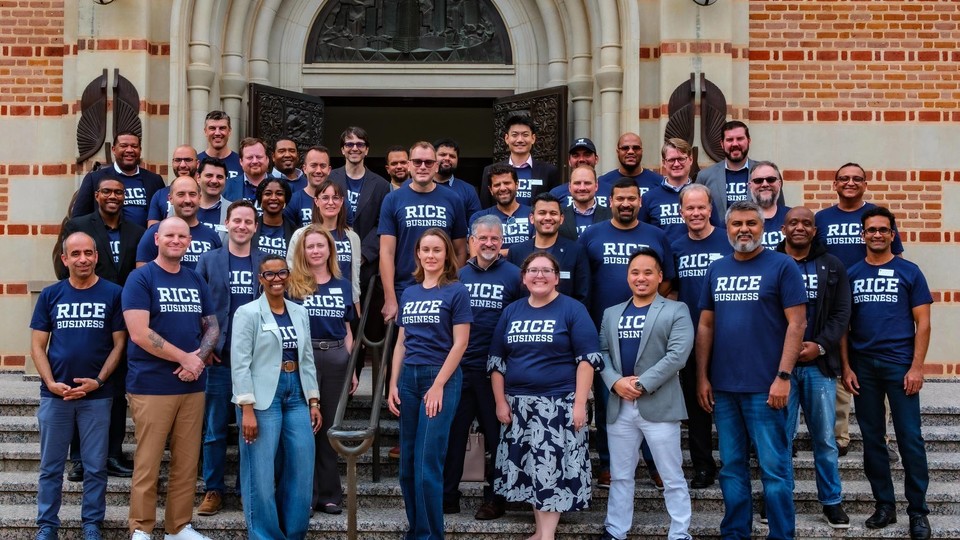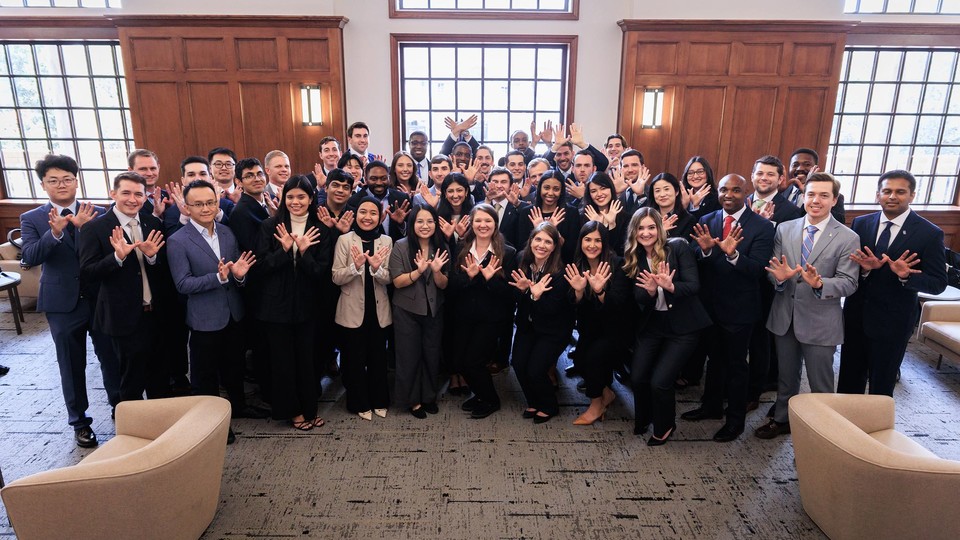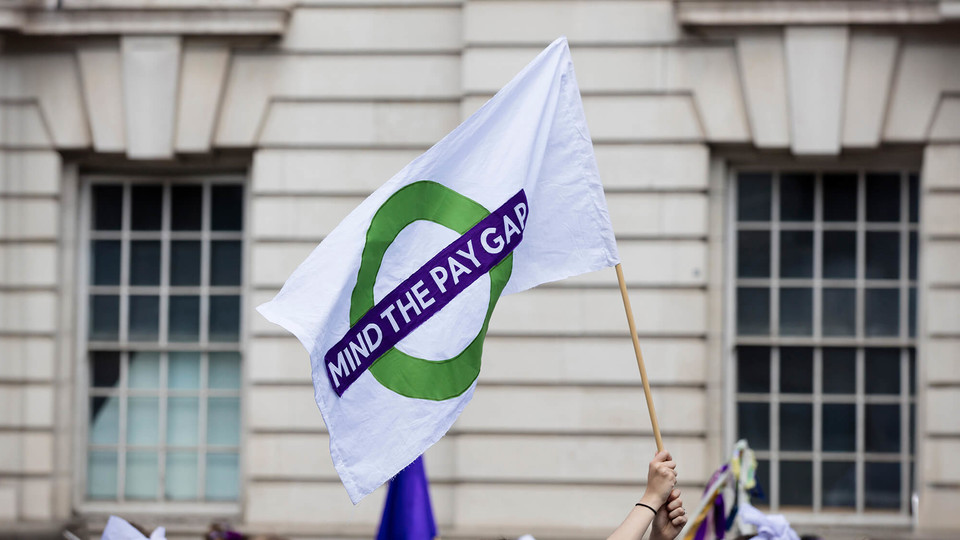A Message From Our Dean
My name is Peter Rodriguez. I’m dean of Rice Business, an economist, a family man and a photographer. If you don’t know Rice University and you don’t know Houston, I’d love to introduce you.


Dean Rodriguez shares what Rice Business looks for in its handpicked students and the must-haves that will make them leaders and complex problem-solvers.
Like most B-School deans, I have given more than a few talks on the value and transformative power of an MBA. In official, academic settings this message is thoughtfully delivered within the context of the value of education writ large and is rightly connected to a message of personal, life-long growth. But, in a casual setting or an elevator, brevity rules and I just say, ‘this is the best career decision you’ll ever make.’
With a few more moments, I like to expand the conversation and talk about what all of us try to do every day: make a difference. We’re all working with teams of people trying to advance towards a goal that has meaning for us. That’s why we form groups and teams in the first place. Because we can’t accomplish big goals alone. Put another way, the purpose of any organization is to solve a particular set of problems, for their stakeholders, customers, and/or society. And, to that organization, you are worth the size of the problem you can solve. A business school’s job is to teach you to solve bigger and more complex problems – the ones all organizations face. In order to do that, we believe our students must be broadly and rigorously trained, empathetic and passionate. We’re looking to make leaders.
My name is Peter Rodriguez. I’m dean of the Jones Graduate School of Business, an economist, a family man and a wannabe photographer. If you don’t know Rice University and you don’t know Houston, I’d love to introduce you.
Rice Business is a young business school, founded in 1974 and named after Jesse Jones, a prominent Houston business leader, and philanthropist. The school sits in the heart of the Rice University campus — 300 wooded acres next to the Texas Medical Center, the museum district and the zoo. A short Metro ride to the innovation hub, downtown, the theater district and sports stadiums, Rice is a big part of the vibrant fabric of Houston. It was named one of the nation’s top five private universities and is consistently ranked in the top 15 in U.S. News.
Houston is the fourth-largest city in the U.S. and has one of the youngest, fastest-growing and most diverse populations in the world. At the same time, it feels accessible. You name it, we’ve got it. Oil. Gas. Healthcare. Banking. Tech. Startups. Food. Arts. Sports. (Did I mention the Astros?) And Texas charm. Whether you live here for two years and go off to a great new job in Seattle or New York or stay to make Texas your home, Houston is a great place to land for graduate school.
Even in such a large city and dynamic location, Rice Business offers a personal, tailored approach. We’re an intentionally small program in the nation’s most diverse city. With students and scholars from 89 countries, Rice is the second most international university in the U.S. Every student is handpicked for their experience, perspective, background, and interests.
Interested in Rice Business?
At Rice Business, our classes are taught by a dedicated group of faculty with big reach. Reach, for us, means going beyond the classroom to unleashing our professors’ scholarship into the world. Rice Business Wisdom, our online ideas magazine, translates faculty research into short snappy articles and shares them weekly through email and in a magazine. That way, you can follow the kinds of things your professors are researching and talking about in class.
Rice Business is known for its #1 entrepreneurship ranking and the prestigious Rice Business Plan Competition — the largest and richest in the world. An MBA can help you start and nurture a business, if that’s your thing, then grow and sell it. Or it can help turn on your entrepreneurial mindset within your role in a large company. We have an ecosystem of courses, research, and programs for all of that, including the Lilie Lab, as well as co-curricular opportunities and connections to a thriving VC community.
We are also one of the only MBA programs to have an integrated global field experience (and more, if you choose) for each student in every MBA program as part of the curriculum. We know the value of understanding how business is conducted around the world. During your global field experience, you’ll work in teams on short consulting projects for organizations in the host country along with tackling a service project in the local community.
As a forward-thinking business school for the next generation of global leaders, we’re here to provide a business education focused on leadership, integrity and service. We designed our programs to provide the education and skills you need to advance professionally. The Career Development Office will partner with you to identify and meet your professional goals. From resume writing and group workshops to an online career course and one-on-one career strategy advising, you’ll have an experienced team on your side. That goes for our connected and collaborative alumni network, too. They’re accessible, active with the business school and interested in helping future alums.
If you're considering joining us, check out more of our admissions blogs for valuable application tips and insights into the admissions process.
Once you enroll, you’re part of the Rice family. Let us help you find a way to change the world and change your future. If you want to join the next class of Rice MBAs, get in touch with one of our recruiters and be ready to take the first step to solving the world’s biggest challenges. You belong here.
_________________________________________________________________________________
Interested in learning more about the MBA programs offered by Rice Business? Send us an email at ricemba@rice.edu.
You May Also Like
Dean Shares What Rice's B-School Looks For
Dean shares what Rice's B-School looks for in its handpicked students and the must-haves that will make them leaders and complex problem-solvers.
Redskins PR exec Tony Wyllie says it’s a ‘privilege’ to head to Special Olympics
For 29 years, NFL executive Tony Wyllie, an MBA graduate from Rice, has helped sports organizations and their athletes with branding and communications, including nearly a decade as a senior vice president of communications for the Washington Redskins. Now, Wyllie, 51, is heading into his next chapter as the regional president and managing director for Special Olympics North America.
Flexing Their Muscles
The complex influence of company owners.


Based on research by Robert E. Hoskisson (George R. Brown Emeritus Professor of Management), Brian L. Connelly, Laszlo Tihanyi and S. Trevis Certo
The Complex Influence Of Company Owners
- Owners influence company management decisions.
- Ownership, in fact, is a form of corporate governance.
- As ownership becomes more varied and sophisticated, owners and managers both need to understand how ownership affects governance and management.
Skim the headlines of the Wall Street Journal, and it’s clear that owners interact with their corporations in a kaleidoscope of ways. Similarly, when owners sell, it’s not simply because the investment no longer fits their interests.
Instead, shareholder activists such as Carl Icahn use a broad range of sophisticated strategies to force corporate boards and management to take specific actions. Mutual funds do the same. A prime example: Ralph Whitworth’s mutual fund, Relational Investors, which drove Home Depot’s management to divest in its contractor services business.
How owners interact with firm management, in other words, has become an increasingly potent form of corporate governance. This is especially true now that activist investors hold a significant portion of U.S. and UK public equity.
But research about the ways that different ownership types governmanagerial actions has not caught up with this trend. In response, now retired Rice Business emeritus professor Robert Hoskisson and a team of colleagues surveyed the research in finance, accounting, economics, law and management to assess the existing body of knowledge.
As a first step, Hoskisson and colleagues differentiated between corporations with inside ownership and those with outside ownership. Inside ownership types include executives, board members and non-executive employees. Outside owners include blockholders, agent owners and private equity owners.
Inside ownership, the researchers noted, lends itself to coordinating owner and corporate interests. The idea is that owners may be more inclined to align their choices with managers’ interests if they have skin in the game.
Outside owners complement inside owners, the researchers write, by more closely monitoring managers’ choices.
The researchers next delved into the effect of ownership structure on firms. Historically, owners shaped management they didn’t like simply by threatening to leave the business. Today, however, disgruntled owners have more options than taking the Wall Street walk. Depending on the owner and motivation, investors can make their wishes known with steps including triggering restructuring, plunging into activism or buying-and-holding.
Activist investors use a variety of tactics, including private meetings with management, hostile media campaigns or filing shareholder proposals through the proxy voting process or through the SEC, which allows owners to band together to influence firm or management behavior. Alternatively, one owner with a significant share position can influence behavior singlehandedly.
Finally, owners such as Warren Buffett, who buy and hold can play the long game. These investors are often especially valuable to companies because their loyalty lets management focus on action with longer-term benefits. General Mills' 2000 acquisition of Pillsbury exemplifies this: Although its initial quarterly earnings dropped, the corporation better positioned itself to compete with Kellogg in the long-term.
Overall, the researchers write, ownership affects firm outcomes, performance, strategy and governance processes. And this impact is substantive. Evidence shows that influence from internal ownership, outside blockholder ownership and long-term ownership all results in better firm performance.
So keep checking the headlines. After Occidental Petroleum acquired Anadarko Petroleum, for instance, Warren Buffet, T. Rowe Price and Carl Icahn each weighed in with a different strategy to advance shareholder interests. As Hoskisson’s team confirmed, such ongoing tussles and maneuvers between managers and owners are signals that much corporate governance takes place outside the office walls.
Robert E. Hoskisson is the George R. Brown Emeritus Professor of Management at Jones Graduate School of Business at Rice University.
To learn more, please see: Connelly, B. L., Hoskisson, R. E., Tihanyi, L., & Certo, S. T. (2010). Ownership as a form of corporate governance, Journal of Management Studies, 47(8), 1561-1589.
Never Miss A Story
You May Also Like
Keep Exploring
10 most promising companies named at Rice Alliance Energy and Clean Technology Venture Forum
Ultrafast battery charging and a method to stop oil spills from spreading are among the technological advances touted by new companies honored this year at the largest energy tech venture capital conference in the U.S.


Ultrafast battery charging and a method to stop oil spills from spreading are among the technological advances touted by new companies honored this year at the largest energy tech venture capital conference in the U.S.
The Rice Alliance for Technology and Entrepreneurship announced the 10 most promising companies at the 17th annual Energy and Clean Technology Venture Forum held Sept. 10-11 at Rice University’s Jones Graduate School of Business. The companies showcased their new offerings at the conference attended by more than 750 investors, industry leaders, entrepreneurs, business executives, mentors and service providers.
The event culminated in the announcement of the 10 companies chosen from more than 180 applicants and judged by Rice Alliance energy and clean technology industry experts and participating investors. Fifty-seven companies presented business pitches at the forum, with an additional 31 participating in the company showcase and investor speed networking session. Over seventy investor groups, including nearly all the major energy operators and service companies, met with 88 companies the day after the forum.
This year’s participating companies were the most diverse in the history of the event, coming from eight countries and 19 states. Internationally, companies came from Germany, Norway, Italy, Brazil, Canada, Israel and Liechtenstein.
Five of the 10 most promising companies hail from across the nation and abroad: GBatteries from Ottawa, Ontario; HARBO Technologies from Tel Aviv; Lilac Solutions from Oakland, California; Mission Secure from Charlottesville, Virginia; and MolyWorks Materials from Los Gatos, California. The other five most promising companies are based in the Houston area: Nesh, Rheidiant, Sensorfield, Sensytec and Syzygy Plasmonics.
“Every year the quality of companies improves,” said Rice Alliance Managing Director Brad Burke, who, along with Brittany Sakowitz, a partner at law firm Vinson and Elkins, presided over the announcement of the award winners. “Over the past 17 years, more than 2,450 companies have presented at Rice Alliance Technology Venture Forums. These companies have raised more than $8 billion in funding. This speaks to the quality of the companies and to the robust entrepreneurial ecosystem in the Houston region that has developed to support these companies. It demonstrates that good companies have been able to attract investors.”
The 10 most promising companies:
GBatteries, Ottawa, Ontario:
GBatteries is an advanced battery technology company that can charge lithium-ion batteries ultrafast without compromising battery life or changing chemistry.
HARBO Technologies, Tel Aviv:
HARBO Technologies develops revolutionary oil spill response technology that immediately stops spills from spreading, significantly reducing their consequences.
Lilac Solutions, Oakland, California:
Lilac Solutions is a lithium-extraction technology company that has developed a patented process to lower the cost of lithium production.
Mission Secure, Charlottesville, Virginia:
MSi is an industrial control system cybersecurity company protecting key assets for defense and industry.
MolyWorks Materials, Los Gatos, California:
MolyWorks is building a distributed recycling and additive manufacturing network that converts metallic scrap into metal powders for additive manufacturing at the point-of-need.
Nesh, Houston:
This smart assistant for oil and gas companies helps them make better and faster decisions by organizing the complex industrial knowledge within the company and making it effortlessly accessible.
Rheidiant, Houston:
Rheidiant is a venture-backed startup helping innovative energy and power companies implement low-power, wide-area-based industrial Internet of Things solutions. Within a matter of weeks, without migrating data or replacing existing assets, it offers large enterprises with established IT and operational technology architectures modular tools to implement analytics-based solutions such as preventative maintenance, production optimization and leak detection.
Sensorfield, Houston:
Sensorfield provides a complete and uniquely simple plug-and-play platform for monitoring remote industrial equipment based on advanced, tiny solar-powered sensors with edge computing.
Sensytec, Houston:
Smart cement technology helps engineers monitor cement/concrete conditions accurately and continuously by providing real-time data to monitor the health and integrity of cement/concrete structures and to predict and prevent cement/concrete failures.
Syzygy Plasmonics, Houston:
Syzygy Plasmonics is developing a next-generation photocatalytic reactor to produce ultra-low-cost hydrogen gas on-site at customer locations.
The Forum was supported by:
Chevron, Shell, Exxon Mobil, Mercury Fund, Wells Fargo, Insperity, Accenture, BP, Saudi Aramco Energy Ventures, Total, Shearman and Sterling, Norton Rose Fulbright, TechnipFMC, Hess, Occidental Petroleum, Eunike Ventures, Silicon Valley Bank, Altira, Ara Partners, Cimarex, Clovis Point Capital, ConocoPhillips, DCP Technology Ventures, Energy Innovation Capital, Equinor, EV Private Equity, Evok Innovations, Intervale Capital, Lime Rock Partners, PIVA, SCF Ventures, Canadian Consulate, Hunton Andrews Kurth, Leyendecker Executive Search, PKF Texas, Vinson and Elkins, Waste Management, Energy Valley, ATI, Cleantech Open, EPIcenter, Greater Houston Partnership, Houston Exponential, Houston Angel Network, Southwest Research Institute and Rice Business.
Decisions, Decisions
Once you decide to transform your career with a Rice MBA, the next step is picking the program that is perfect for your specific needs. Here's how to choose.


Which Rice MBA Program Is Right For You?
Updated from original post that was published in 2019.
Your work ethic is tops. You’re shrewd about investing your money and talent. And you know your choices can change your world, so you're determined to make good ones.
Once you've decided to transform your career with a Rice MBA, the next step is picking the program that targets this world-class education to your specific goals. Laser-focused on a Full-Time MBA? Want to fine tune your leadership skills with an Executive MBA? Interested in turbocharging your future while staying on track at work with the Professional MBA or Hybrid MBA? Or taking the digital express lane with the MBA@Rice? Rice Business alumni are thriving thanks to each one of these programs. Here's how to choose the one for you.
Plug Into A Power Network With The Full-Time MBA
With 170 students whose makeup echoes the most diverse city in America, the full-time MBA offers a professional network that will last a lifetime. Its uniquely demanding and collaborative academic culture ensures that you will come away with top-flight business expertise – as well as an unmatched professional community, built by working together. In addition to classroom instruction and collaboration with their peers, full-time MBA students have the opportunity for a student internship over the summer which provide the chance to explore new, different job functions or even industries.
“Rice Business has carefully crafted a class with a wide array of backgrounds and future plans. From teachers and soldiers to accountants and engineers, there are a wide variety of experiences from which to draw wisdom, and this greatly enhances the in-class discussion,” says Patrick Ray (Full-Time MBA).
Gain Skills While Working By Choosing The Professional MBA
There's little that can catapult you further at work than acquiring new skills. The Rice Professional MBA is for students committed to improving their abilities while continuing their current jobs.
The Professional MBA is designed for flexibility, and includes a part-time evening or weekend option that allows you to download new abilities in career accelerators. And students are able to take advantage of some less obvious benefits: a smaller yearly financial commitment and more opportunity for work-life balance.
The tradeoff for the focus required for the Professional MBA? Exhilarating new opportunities, earned without missing a beat in your career. “I always knew Rice had an exceptional reputation, but the high caliber faculty still surprised me,” says Abhayah Indupalli (Professional MBA). “Every professor is extremely passionate about the subjects they teach, and it's infectious. They will always make sure everyone understands a topic before moving on so you never feel like you're just one of many.”
"Business school is demanding and time-consuming," notes Professional MBA student Fernanda Castanon. "However, I consider it is the best investment you can make to have better opportunities for your professional progress."
Interested in Rice Business?
Prepare For Top Leadership With An Executive MBA
If you’re already at senior level, you know you wouldn’t have reached that point without pushing yourself to learn. The Executive MBA is for seasoned executives and managers who have an average of 15+ years’ experience – and are ready to gain breadth of knowledge outside their current areas of mastery. The Rice Executive MBA will give you and your classmates training in leadership, strategy and decision-making skills. In addition to core instruction, experiential training with your cohort and mandatory international experience, the Rice Executive MBA offers each student personalized executive coaching.
“I chose Rice for my EMBA because it is the best school in Texas,” says Don Hobson, director of engineering at On Center Software. “I needed a program that would not disrupt my career or family while still providing a rigorous curriculum from a highly ranked educational system, a great alumni network and world-renowned professors.”
Access Innovation, Efficiency And World-Class Teaching With MBA@Rice
You already do much of your best work online: communicating and creating, analyzing and building. MBA@Rice uses the technology of the 21st century workplace to propel you ahead professionally. No matter where you are, MBA@Rice gives you a globally competitive business education, with no need to leave your home and work commitments.
The core curriculum, the same as the campus-based MBA programs, develops understanding of critical business principles such as business analytics, marketing strategy, leadership and finance. It also permits you to apply these skills in a focused specialization. The second-year curriculum empowers you to apply the skills in your own, self-designed focus area.
The flexibility of online study allows you to earn a Rice MBA degree wherever you live. This digital efficiency is enhanced with essential human interactive training: each term, a week can be devoted to an Intensive Learning Experience or Rice's signature Global Field Experience, available in all of the school’s MBA programs. "Today's prospective students are digital natives," Rice Business Dean Peter Rodriguez says. "By extending our reach, we will be able to attract students who can't come to campus but still want to join a top MBA program."
Online or in person, in a full-time cohort or complementing the workweek, Rice offers an array of options for gaining your MBA. Regardless of the time frame or medium, you can be confident your investment is sound: a Rice MBA provides top preparation for the specific professional future you want to create.
You May Also Like
Rice U. experts available to discuss 2019 United Nations Climate Change Summit
As concerned citizens and environmental activists prepare for the 2019 United Nations Climate Change Summit in New York City Sept. 23, Rice University researchers are available to discuss various topics related to the event.


As concerned citizens and environmental activists prepare for the 2019 United Nations Climate Change Summit in New York City Sept. 23, Rice University researchers are available to discuss various topics related to the event.
Bill Arnold, professor in the practice of energy management and a former energy industry executive, is available to comment on the issues at play at the intersection of corporate interests and culture and public policy. He said as the climate debate heats up ahead of the 2020 U.S. elections, the country’s oil and gas companies want to get in front of the curve. But they may be hampered by a longstanding culture of playing defense, he added.
“The oil and gas companies want to get ahead of the curve but want to avoid claims of greenwashing, so their investments in renewables, both research and operations, are more bite-sized,” Arnold said. “Of course, that generates criticism by contrasting tens of millions of dollars of investments for renewables against hundreds of millions and billions for oil and gas. The majors have a record of falling into defensive mode when criticized, and it’s built into the DNA of many older executives. But this is being challenged by their own younger employees as well as activists.”
Jim Blackburn, professor in the practice in environmental law, can discuss understanding and planning for severe storms such as hurricanes and major rainfall events, including various structural and non-structural solutions. He can also talk about carbon footprints and the use of nature (including grasslands, saltwater wetlands and forests) to remove carbon dioxide from the atmosphere. He can also discuss carbon neutral design as well as the role of the market system in forcing this type of design.
“The climate summit should recognize and address the huge contribution that can result from carbon dioxide removal and storage in natural ecological systems such as grasslands, marshes and forests,” Blackburn said. “These will be an important economic activity in the future as emitters seeking to become carbon neutral by 2050 begin to pay landowners for the removal and storage of their carbon footprint. This in turn could easily redefine United States agriculture in the 21st century.
“The economic, social and ecological advances required to attain the sustainable development goals are directly related to addressing carbon dioxide and other greenhouse gas emissions. Without controlling carbon, it will be impossible to meet the sustainable development goals of the United Nations.”
Dominic Boyer, a professor of anthropology and founding director of the Center for Energy and Environmental Research in the Human Science at Rice, can discuss topics related to renewable energy and energopolitics. His work on climate change topics in Iceland and the recent installation of the world’s first memorial to a fallen glacier has been the subject of significant international media attention.
“The Ok glacier memorial demonstrates how the natural sciences, human sciences and arts can work together to raise climate awareness and inspire climate action,” he said.
Dan Cohan, an associate professor of civil and environmental engineering, can discuss the science of climate change, U.S. emissions and policies, technologies for mitigating climate change, reducing emissions and the interaction between air pollution and climate change.
“This summit is the latest attempt to bridge the gap between the ambitions of the Paris Agreement and the reality of rising emissions,” he said. “What I’ll be looking for is how American cities, states and businesses step into the void to keep the United States relevant to the quest for climate solutions.”
Sylvia Dee, an assistant professor of Earth, environmental and planetary sciences, can comment on rates and context of climate change as well as its impacts in the U.S.; CO2 forcing scenarios and “safe” warming targets; climate change and human migration, adaption and impacts; changes in the hydrological cycle including drought and extreme precipitation; and changes in hot temperatures, including 100-plus degree days.
“The international community has to move as fast as possible to reduce greenhouse gas emissions and environmental degradation via any means necessary,” Dee said. “Livable temperatures, clean air, clean water and generally maintaining the habitability of our planet is not a partisan issue for any nation.”
Cymene Howe, an associate professor of anthropology, can discuss the political and social contingencies of renewable energy development as well as the social and political significance of ice in the Arctic. Her work in Iceland and the recent installation of the world’s first memorial to a fallen glacier has been the subject of significant international media attention.
“In addition to the science, we really need to understand the social and cultural impacts of climate change, because the climate crisis is a social problem just as much as it is an environmental one,” Howe said.
Caroline Masiello, a professor of Earth, environmental and planetary sciences, can discuss mechanisms to remove CO2 from the atmosphere and the role of technological approaches and nature-based approaches.
“Long term, we need the kinds of multi-stakeholder engagement that this summit provides,” she said. “We need this type of meeting, and more: opportunities for governments, businesses and NGOs to work together to transition to renewable energy, sustainable agriculture and resilient cities. All these stakeholders are needed to develop functional models of a habitable future for our planet.”
Rouzbeh Shahsavari, an adjunct assistant professor of civil and environmental engineering, can discuss curbing CO2 emissions due to manufacturing of construction materials. Shahsavari said that concrete is the most widely used manufactured material on the planet and contributes to 5-7% of total CO2 emissions worldwide.
“I believe future building materials will come from mixing CO2 and industrial wastes such as flyash, slag and plastic wastes, etc., thereby avoiding using virgin cementitious materials and the associated CO2 emissions,” Shahsavari said. “Simply put, we’ll turn trash into treasure.”
Rice University has a VideoLink ReadyCam TV interview studio. ReadyCam is capable of transmitting broadcast-quality standard-definition and high-definition video directly to all news media organizations around the world 24/7.
To schedule an interview with any of these experts, contact Amy McCaig, senior media relations specialist at Rice, at 713-348-6777 or amym@rice.edu.
This news release can be found online at news.rice.edu
Follow Rice News and Media Relations via Twitter @RiceUNews
Related materials:
Images for download: https://news.rice.edu/files/2019/09/26743615_l.jpg
Image credit: 123rf.com
Tree Of Life
Why you should savor who you could have been.


Based on research by Otilia Obodaru (former Rice Business professor)
Why You Should Savor What Might Have Been
- The array of career options in 21st century America often leaves us “tyrannized by freedom.”
- As a result, we often cling to identities we didn’t choose — especially when we’re unfulfilled in some aspect of our work.
- These alternate identities can actually be useful, when we fold elements of them into our current lives, or savor them in our imaginations.
Poet Sylvia Plath once compared her seemingly limitless life choices to the boughs of a fig tree. “From the tip of every branch, like a fat purple fig, a wonderful future beckoned and winked,” she wrote in The Bell Jar. “One fig was a husband and a happy home and children, and another fig was a famous poet and another fig was a brilliant professor… I saw myself sitting in the crotch of this fig tree, starving to death, just because I couldn't make up my mind which of the figs I would choose. I wanted each and every one of them, but choosing one meant losing all the rest…”
We’ve all had to choose one fig over the others at some point. But the fruits not chosen may not be lost forever. They actually remain a part of our self-concepts, often with as much importance as the roles we play in real life, according to former Rice Business professor Otilia Obodaru, now a professor at the University of Bath.
The fig trees of contemporary life are especially dense, Obodaru notes in a recent paper. Never before have so many been so free to choose a public self — and discard any number of others. So what’s the best way to manage these unlived identities? Forget them? Keep pondering them?
Obodaru, who studies professional self-concepts and alternate identities, found that we typically cling to forgone identities when they’re linked to unfulfilled values. If a core goal or value has been met, the desire for the lost identity often vanishes.
According to classic theories of identity development, committing to one identity and forgetting alternatives is a requirement for a well-adjusted adulthood. Management studies use a similar lens, focusing on the professional identities people actually hold rather than those they’ve passed up.
But as early as the 1950s, studies asking what people wished they’d done differently in life found that 40 percent thought frequently about the person they might have been. That percentage has risen steadily, to 70 percent in the 1980s, 90 percent in the 1990s and virtually 100 percent in the 2000s. For some people, Obodaru writes, these forgone identities grow so powerful that they essentially become alternative selves.
In a study of the forgone professional identities of 380 people of various ages, occupations and nationalities, Obodaru found that these shadow selves were much more important in inner lives than commonly thought. Looking only at the roles we play in reality, she argues, obscures the complexity and malleability with which each of us creates a sense of self.
But what are these alternate selves up to, exactly — and what keeps them going? Obodaru identifies three main ways we maintain identities that apparently have slipped away. One approach is “real enactment”: someone who dreamed of being a musician may nevertheless nurture music – and thus her alternate self — in her work or personal life.
Another method is “imaginary enactment.” Think of a woman who daydreams about being a pop star. She’s not necessarily wasting her time, Obodaru found. Instead, her imaginings may add a critical, and joyful, element to her sense of self.
Finally, there’s “vicarious enactment”: living a life we long for through someone else, whether a high school friend who really did become a pop star or our child in her star turn as a Pilgrim in the Thanksgiving play.
What we do and who we think we are, of course, are closely twined. But, Obodaru argues, it’s time for the workplace to expand this formula to also include the selves that are less visible. For managers in particular, understanding an employee’s unfulfilled values can help to chart a career path that will keep her energized and productive.
This is especially important in a culture that promotes the notion of complete fulfillment in one job. Given that “fear of missing out,” or FOMO, was recently listed in the Oxford English Dictionary, it’s clear that alternate selves are no longer just a problem of prodigies such as Plath. Regardless of which fig you’ve chosen, however, Obodaru argues that it’s not just possible, but useful, to take nourishment from a bounty of other, alternative fruits.
Otilia Obodaru is a former assistant professor of management at Jones Graduate School of Business at Rice University. Now she is a professor of management at the University of Bath.
To learn more, please see: Obodaru, O. (2017). Forgone but not forgotten: Towards a theory of forgone professional identities, Academy of Management Journal, 60(2), 523-553.
Never Miss A Story
Keep Exploring
Rice ranks among top 20 national universities, still best in Texas
Rice University continues to rank among the top 20 national universities in the newly released 2020 U.S. News & World Report ratings of the country’s best colleges, retaining its position as the highest ranked university in Texas.
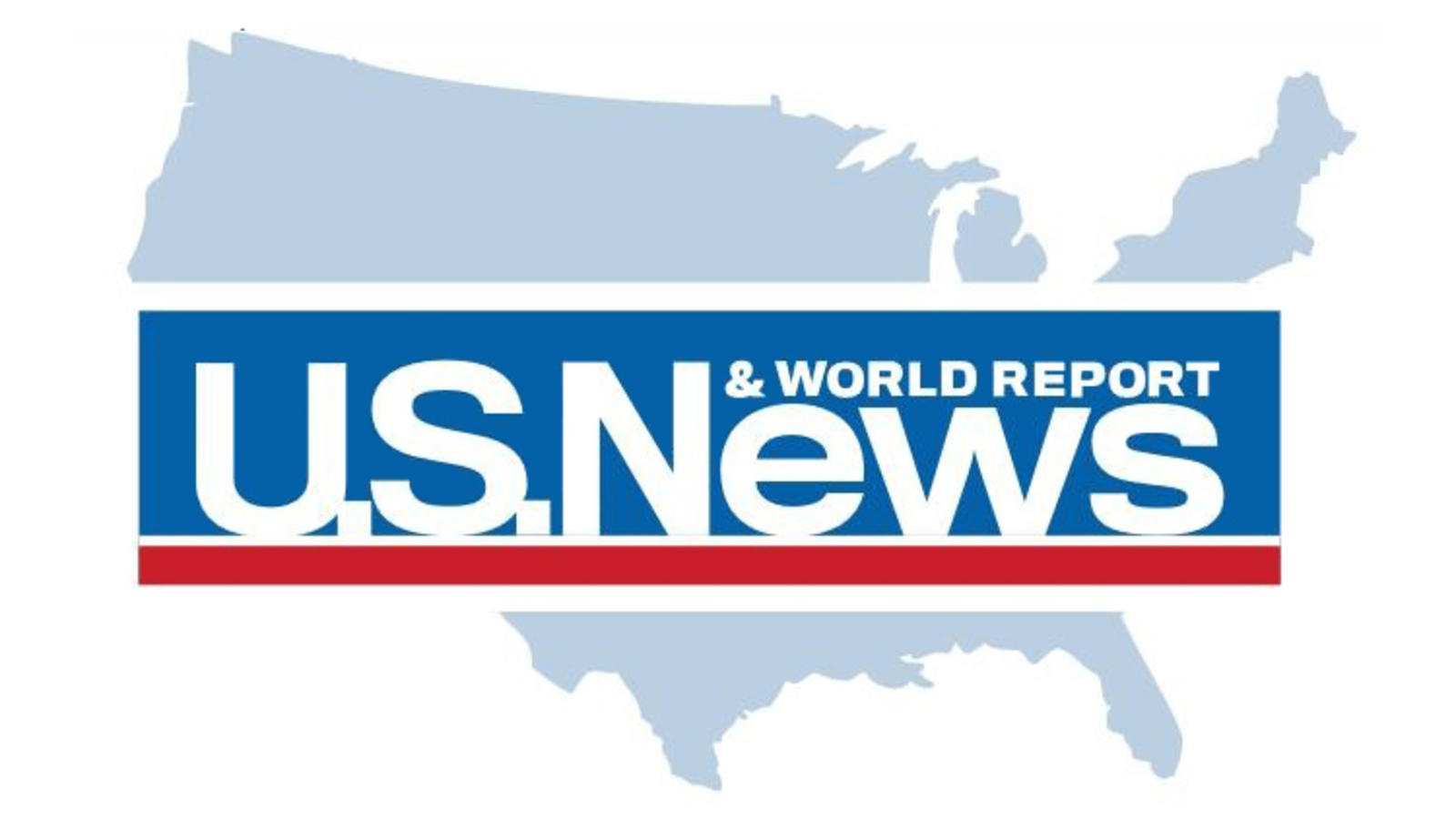
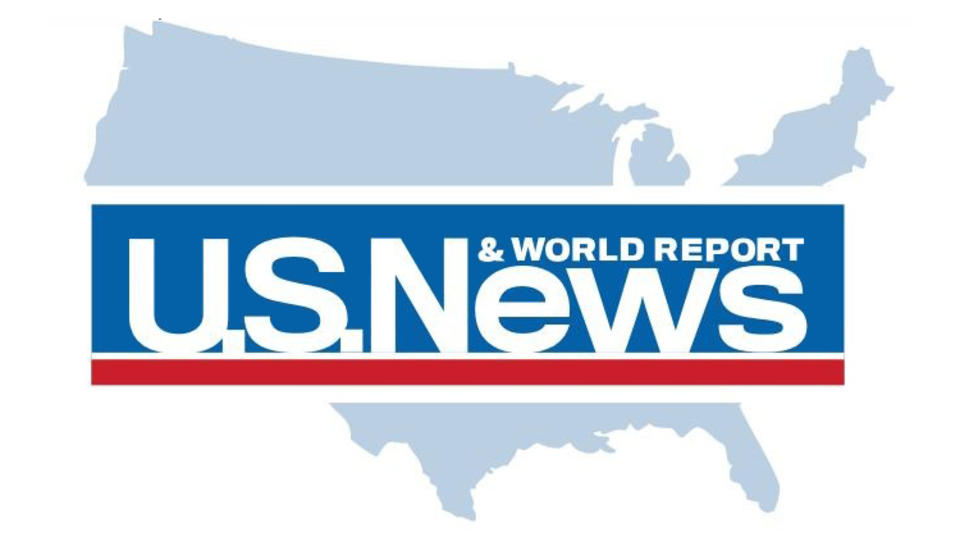
US News survey also rates Rice in top 10 list for teaching undergraduates
Rice University continues to rank among the top 20 national universities in the newly released 2020 U.S. News & World Report ratings of the country’s best colleges, retaining its position as the highest ranked university in Texas.
Rice ranks no. 17 in the annual survey of more than 300 U.S. universities that offer a full range of undergraduate majors and master’s and doctoral degrees while placing a strong emphasis on research. Rice has consistently rated in the top 20 of this closely watched report since first appearing on the list in 1988.
Rice also ranks No. 8 on the U.S. News “Best Undergraduate Teaching” list for national universities, reflecting goals outlined in President David Leebron’s Vision for the Second Century, Second Decade (V2C2).
The university is also rated one of the nation’s top 20 “Best Value Schools.” Among national universities in this category, Rice ranks 13th and it’s the only institution in Texas in the top 50.
The university’s undergraduate engineering program is lauded as one of the nation’s top 20 such programs offering doctoral degrees. Rice shares the 20th spot on the list in a tie with four other universities.
Rice also ranks among the nation’s the most innovative schools (27th), as well as ratings of institutions with the greatest economic diversity (16th) and campus ethnic diversity (29th).
U.S. News also surveyed college presidents, chief academic officers and admissions deans, asking which universities they believe have especially strong programs focusing on student success. Rice ranked among the top 20 for providing students with a strong learning community (No. 13) and for providing students with senior capstone projects that offer culminating experiences at the end of their college careers (tied with eight other universities for No. 20).
U.S. News is the second major publication in a week to rank Rice among the nation’s top 20 universities. The Wall Street Journal/Times Higher Education College Rankings rated Rice No. 16, the only university in Texas in the top 50. The survey also lauded Rice in its “Top Schools for Resources” list, ranking the university No. 7 in its assessment of academic spending, student-faculty ratios and research output.
The WSJ/THE rankings focus on how well colleges prepare students for life after they graduate. The overall ranking is based on 15 factors in four main categories: student outcomes (including graduate salaries and debt burdens), academic resources, student engagement and diversity. The survey takes into account the responses to questions answered by roughly 174,000 students.
More information on the 2020 U.S. News rankings can be found at www.usnews.com/best-colleges/rankings/national-universities.
More information on the WSJ/THE rankings can be found at https://www.wsj.com/articles/explore-the-full-wsj-the-college-rankings-11567638555.
The business behind the ballgame: New Rice course will teach how to run an NFL franchise
From cellular biology to English literature to music theory, Rice University students can learn about all kinds of subjects. This semester, one more topic has been added to the course catalog: A lucky group of students will learn how to run an NFL franchise, from the experts themselves. Thanks to a partnership with the Houston Texans, Rice sport management students will take part in Pro Sports: Management, a course designed to teach the business behind the ballgame.
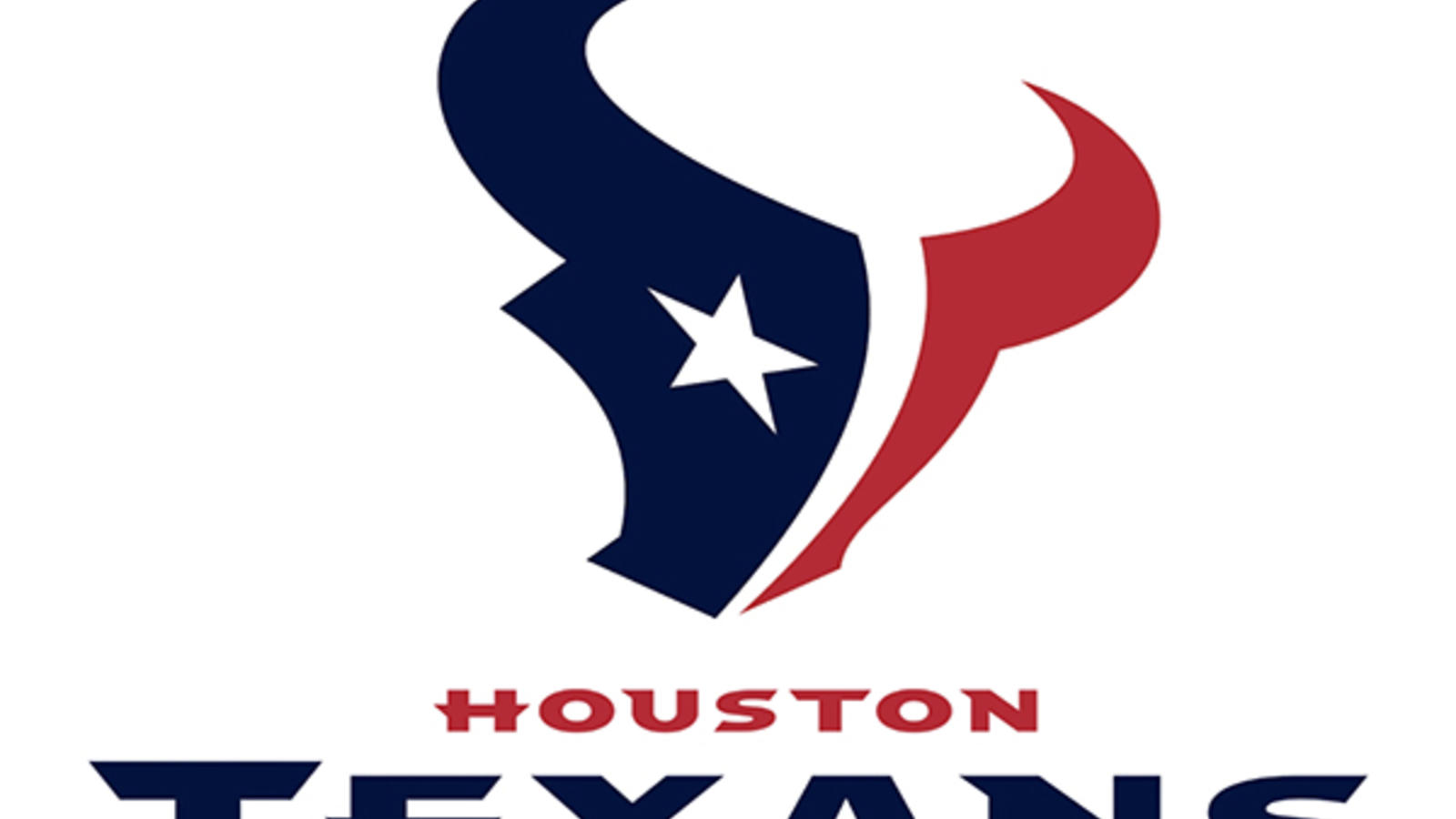
From cellular biology to English literature to music theory, Rice University students can learn about all kinds of subjects. This semester, one more topic has been added to the course catalog: A lucky group of students will learn how to run an NFL franchise, from the experts themselves.
Thanks to a partnership with the Houston Texans, Rice sport management students will take part in Pro Sports: Management, a course designed to teach the business behind the ballgame. Students will learn from members of the Texans administrative staff about the ins and outs of running a professional sports franchise. Diane Crossey, a professor in the practice in the Department of Sport Management, is the Rice faculty instructor for the course. Before joining Rice in 2015, she worked for the Texans for 13 years.
The weekly class, held inside the executive offices of the Texans, will include sessions on ticketing, public relations, event management, human resources and more. Students will be required to develop and deliver weekly presentations on these and other relevant topics. Toward the end of the semester, students will work at a Texans home game alongside administrative staff. The final class project will include a reflective writing assignment.
“We are thrilled to partner with Rice University on a curriculum that will provide their best and brightest students with insight into the real-world opportunities and challenges facing today’s sports teams,” said Houston Texans President Jamey Rootes. “This program is rather unique because our leading executives will work alongside Rice professors to teach current best practices in franchise management across every discipline. We believe that this type of practical industry exposure is the best way to prepare the next generation of leaders in the field of sports management and a valuable contribution to the level of professionalism within our industry.”
“In the Department of Sport Management, we always look for new ways to challenge our students,” said Clark Haptonstall, chair of the department. “Having them work directly with executives for the Houston Texans, on real-world projects, is going to push our students to show their capabilities.
“Diane is the perfect person to teach this course. In addition to being a tremendous instructor, her years of success working in the Houston Texans front office is extremely valuable to our students.”
At the completion of the course, students will be able to understand the challenges, risks and opportunities facing the various operating departments of professional sports teams and develop problem-solving skills and solutions to meet team goals.
Members of the media interested in covering course sessions and interviewing students or instructors may contact Amy McCaig, senior media relations specialist at Rice, at 217-417-2901 or amym@rice.edu.
This news release can be found online at news.rice.edu.
Follow Rice News and Media Relations on Twitter @RiceUNews.
Related materials:
Rice Department of Sport Management: https://sport.rice.edu/
Image link: https://news.rice.edu/files/2019/09/tex-mkltp-1-cmyk.png
Image credit: Houston Texans
